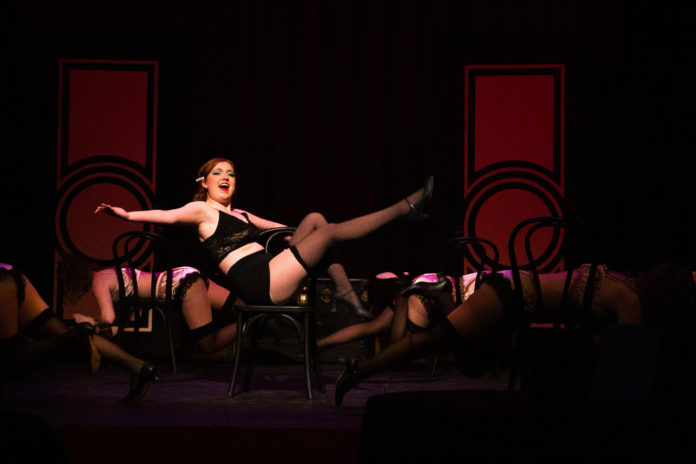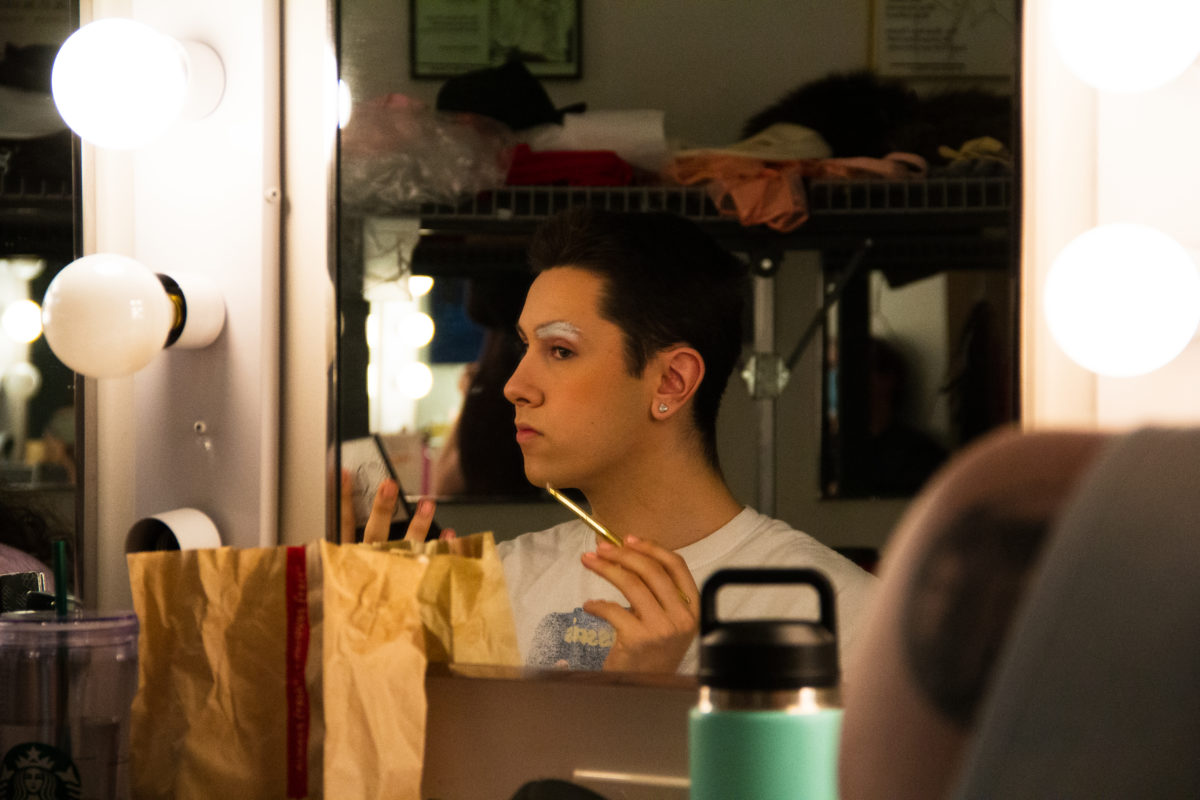
Content Warning: This review mentions Nazi Germany and propaganda as it is a crucial topic in Act 2 of Cabaret.
When I walked through the Black Box theatre doors, greeted by sailors and military men, I was instantly teleported into the Kit Kat Klub, a cabaret club in 1930s Berlin, Germany. Soft jazz music filled the air around the candlelit tables, draped in red, waiting to escort their assigned guest to their place. Cast members, fully in character, were already milling about the bar and walking around tables. I truly felt as though I had been taken back in time.
From March 2 to 5, St. Thomas University said “Willkommen, bienvenue and welcome” to the musical theatre program’s production of Cabaret.
Since this was the first live production that STU Musical Theatre has been able to put on since the beginning of the COVID-19 pandemic, the cast and crew were extra cautious and required an invite-only ticket, proof of vaccination, a negative rapid test and KN95 masks in order to enjoy the show. Considering the size of the Black Box Theatre and the lack of proper ventilation, the extra measures are more than understandable.
All these measures were worth it in the end and didn’t distract from the environment the show created.
I attended on opening night and the only thing that broke the fantasy was the occasional technical issue with the microphones that allowed the band to overpower the voices of those on stage.
Things only got better when the show really began — and boy did it start with a bang.
The Emcee, and in my opinion, the star of the show, played by second-year student Felix Turgeon, slinks onto the stage fully dressed in stilettos, bright pink bondage gear and painted on eyebrows.

Turgeon, without a doubt, stole every single scene he was in. It was obvious that he belongs on a stage and he effortlessly captivated the audience with a perfect German accent, comedic timing, dynamic vocals and incredible dancing. He deserves every ounce of praise that he will undoubtedly receive for his performance.
This is not to say that the rest of the cast was not equally as talented. This cast had me gasping, laughing and smiling throughout the show. These actors were in character regardless of if a spotlight was on them. What’s even more impressive is the fact that whispers between Bobby, played by John Harley, and Victor, played by Drew Hudson, overheard during transitions still maintained the German accent that everyone mastered.
Sally Bowles, played by first-year student Gabrielle Campbell, was another character to watch. I have been to my fair share of productions, but this actress has one of the healthiest belts I have ever heard. Her voice resonated throughout the theatre with a silky tone and chilling vibrato — it was simply gorgeous.
Cabaret is mostly lighthearted in the first act. The show follows American novelist Cliff Bradshaw, played by Noah Deas, and his stay in Berlin, his discovery of the Kit Kat Klub and the more eccentric citizens of Germany. There are more serious moments as hints of political danger are sprinkled throughout the script, but all heaviness is balanced out by the wholesome relationship between room-keeper Fraulein Schneider, played by Julia Haldeman, and fruit-seller Herr Schultz, played by Gregory Robinson.
The second act is not so kind — one minute you’re laughing along with high-kicking cabaret girls and then BOOM! Nazis.
The transition was shown not only through script, but also through Nazi propaganda literally being set onto the audiences’ tables and the dance transitioning from a burlesque/Bob Fosse-style to a traditional German-style with goose-stepping threaded throughout.
What’s so horrifyingly beautiful about the second act of Cabaret is that it allows the viewer to see the rise of the Nazi party in Germany from all perspectives — whether it was pro or anti-Nazi, Jewish civilians or simply those caught in between. The portrayal of the struggles Germans faced and the ignorance or denial that most of them lived in until it was too late, was simply haunting and caused goosebumps to rise on my skin.
By the time my stay at the Kit Kat Klub came to an end, I was trembling — in shock, in mourning, in awe — from everything I had just witnessed.
STU Musical Theatre’s production of Cabaret put the audience amidst the poverty of post-World War I Germany and the rise of the Nazis and forces us to ask ourselves, “what would you do?”
